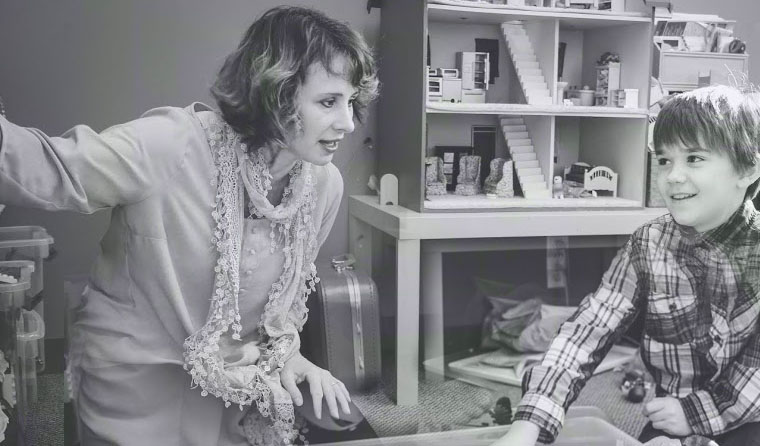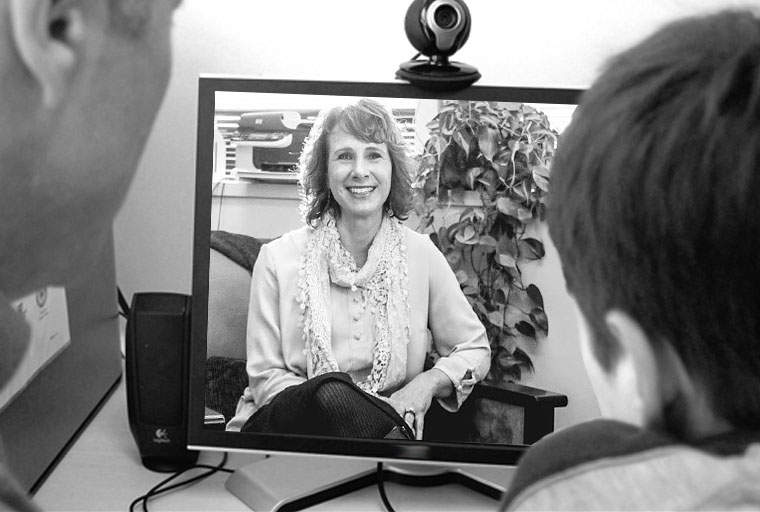It is a privilege to be invited and allowed into another’s life. I strive to provide a caring, compassionate, and non-judgmental therapeutic environment where individual strengths and differences are respected and honored.
It is a privilege to be invited and allowed into another’s life. I strive to provide a caring, compassionate, and non-judgmental therapeutic environment where individual strengths and differences are respected and honored.
The first meeting starts with an assessment session where the goal is to better understand your concerns. Relevant history and background information is gathered in order to assess problem areas and to determine how treatment can be helpful to you.
If the client is a child under the age of 12, typically two meetings are scheduled. During the first assessment session, I prefer to meet alone with parents/guardians. This gives us a chance to talk frankly and honestly about your concerns. The second session is then reserved for your child. My goal during this meeting is to better understand your child and how he/she thinks and feels about different areas of their life. The child is usually engaged in several different structured activities that will provide additional insight into presenting concerns.
After the initial meeting(s), we decide what goals we want to work on and how we want to structure the treatment. It may involve individual therapy, family therapy, parent consultation, or a combination of all of the above. Treatment may be short or long term, depending upon the presenting issue.
If you are a parent or guardian of a child, I trust that you know your child best. I will rely on your input and expertise throughout the process; therapy is most effective when parents/guardians are actively involved.
Play has often been described as “the language of children” and is a critical part of their development. Play therapy can take many different forms. Sometimes, it is structured through the use of books, puppets, and different art materials. Other times, it is more non-directive and the child leads the way.

I believe that given the right therapeutic environment, children have a natural tendency to move toward growth and healing. Therefore, as much as possible, your child is allowed to be in charge of their therapy; I trust their judgment regarding what he/she will bring to the session. It is important to remember that children express themselves differently than adults. Therefore, therapy will also look and feel different.
If your child decides to express him/herself through play during our sessions, know that this is different than the play typically seen at home or on the playground. In play therapy, children recreate their experiences and emotions by attaching symbolic meanings to toys. In essence, this is how they communicate, and through it, they are able to play out traumatic events and work through important feelings, conflicts, and issues. This type of play is work, and can be both exhausting and exhilarating for children. Although specific goals will be unique for each child, benefits of play therapy include an increased sense of empowerment, improved self-esteem and self-confidence, better problem-solving skills, and greater awareness of feelings.
As parents/guardians, you can support the concepts of safety and security by giving your child permission to do or talk about whatever he/she would like in the therapy. When you talk to your child about a session it is helpful to refrain from asking direct questions such as “What did you do?” or “Did you tell Sue about…?” Children will often deflect such questions by responding with “Nothing” or “We just played!” Pressuring your child about their counseling, even if good intentioned, may inadvertently decrease your child’s sense of privacy and ownership of the therapy. Instead, it is better to accept whatever your child spontaneously shares about their session and to leave it at that. Also, when we discuss your child’s treatment, I will try to respect your child’s confidentiality and will probably talk in more general terms rather than specific details about the session.

Teletherapy or Virtual Therapy is conducted through a secure live video connection over the internet. It is the same type of session you would do in-person; it’s just conducted virtually. It is similar to GoToMeeting, FaceTime, or Zoom, but the Teletherapy technology I use is HIPPA compliant and has an extremely secure connection to protect privacy. Teletherapy uses technology similar to Video Chat and conveniently allows us to connect from your computer, laptop, or smartphone. Virtual therapy can be a viable alternative to times when it is difficult to meet in person such as snow storms, illness, or away at college.
Often times, problems affect an entire family and it is therefore, important to involve one or several family members in the therapy. Common problems that might affect a family include:
My job is to help facilitate respectful, honest, and positive communication between family members. Within the family therapy process, we may also problem solve and negotiate difficulties. We may work on clarifying boundaries, expectations, and misunderstandings. A general goal of family therapy is to have more peace and happiness within the home setting. We also want to promote healing within relationships and strengthen family ties. Most often, family therapy is “talk therapy,” as we focus on communication and relationship difficulties. With very young children, we may consider a type of treatment called “filial therapy.” In this treatment, parents are taught how to do play therapy with their children for the purpose of strengthening family relationships and helping kids to work through unresolved issues.
Sometimes, it is helpful for us to meet without your child. We may want to brainstorm strategies and interventions to try at home, discuss co-parenting issues or problems, or discuss family dynamics that may be playing a role in the situation. Often times, it is helpful to get support in the challenging role of a parent.
As parents/guardians, you are the expert of your child. Therefore, it is my hope that we will develop a positive and collaborative working relationship. Your support and involvement is crucial for therapy to be successful.
In cases where there is parent separation or divorce, I extend an invitation for both parents to be involved in the therapeutic process. In order for therapy to be most effective, I maintain neutrality and do not get involved in custody or visitation disputes.
The goal is for treatment to be a positive experience for both you and your child; therefore I encourage you to bring whatever concerns you may have to my attention and for us to maintain good communication. Your feedback is always valued and welcomed!
Over the years, approximately half of my caseload has consisted of clients over the age of 12. I enjoy working with teens and young adults and empathize with the unique pressures they face during these modern times.
Adolescence and young adulthood involves a lot of challenges such as forming one’s identity, figuring out friendships and peer relationships, dealing with intense emotions, working through conflict with family members, managing school pressures, and making important life decisions.
It can also involve a lot of “drama,” something that can cause a lot of pain and frustration for young people. It is not easy to share these experiences with others and I am always honored when I earn an individual’s trust. Privacy is even more important with teens and as much as possible, confidentiality is honored and respected. If you are a parent or guardian of a teen, I ask you to trust the therapeutic process and allow your child to have the space he/she needs. Many times, issues will come up that will be beneficial and/or necessary to involve you or other family members in the treatment. In this case, we may decide to add family therapy to our treatment.